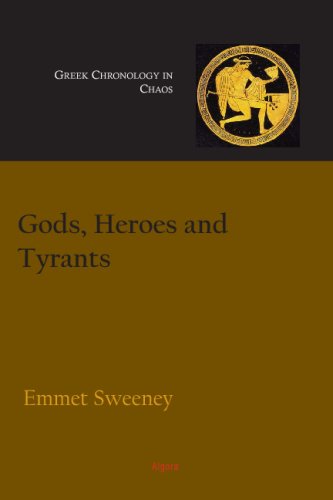Product desciption
Gods Heroes And Tyrants Greek Chronology In Chaos Emmet Sweeney by Emmet Sweeney 9780875866819, 9780875866826, 0875866816, 0875866824 instant download after payment.
Is it possible that the history of ancient Greece as found in the textbooks is seriously misdated? Emmet Sweeney is not the first to make such a proposal. That honor goes to Immanuel Velikovsky, whose series Ages in Chaos (1952) held that the whole of ancient Near Eastern history before the classical age was a fabrication.Velikovsky identified Egyptian chronology as the source of the problem; and indeed the chronology of early Greek history, during the so-called Mycenaean period, was constructed along the lines demanded by Egyptian history. And, in a multitude of ways, legend and tradition agreed. For example, Homer's Iliad is full of references to the Phrygians, who were evidently close allies of the Trojans. Indeed, so intimate is the connection that we might suspect the Trojans themselves of being a branch of the Phrygian nation. Yet Phrygia, it is known, did not exist until the eighth century BC, when the Moschians, or Bryges, a Thracian people, migrated across the Bosphorus and settled in Asia Minor. Greek tradition is explicit that Priam, king of Troy during the famous siege, was a contemporary of Gordius, the first Phrygian king and founder of the capital city Gordion.In this volume Sweeney explores the contradictions and "coincidences" that support a whole new view of ancient history.Much of Greek myth is about the natural events of 850 BC and natural events which preceded them. This being the case, it seems reasonable to assume that the inhabitants of the region at the time were most probably at least in part ancestral Greeks. The culture of these Early Helladic folk was maritime and warlike. They raised great fortifications around many of their settlements settlements which tended to lie along the coast. They were already familiar with tin-bronze, which speaks of trading relations with Atlantic Europe.When considering the source of the military threat against which the Early Hellads raised their huge coastal fortifications, we need to think of Atlantic Europe and Atlantic North Africa, where a mighty seafaring culture, contemporary with Early Bronze Age Greece, is also attested. And this of course brings us into altogether deeper water, in more ways than one.


